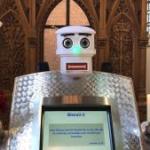Are We At Low Tide for America’s Churches?
PT 3105 Church Decline in America
This past Sunday morning during worship my pastor announced that this summer’s Vacation Bible School would be canceled. Why? Do we have enough volunteers for the faculty? Yes. Are the snacks purchased and placed in the kitchen cupboards? Yes. So what’s the problem? Answer: not enough children enrolled.
Really? Amazing. Puzzling. Devastating.
After worshipping, I had to run an errand in Berkeley. Driving past once bustling yet now quiescent campuses, I was reminded how most of the nine Roman Catholic and Protestant seminaries along with the Graduate Theological Union have either sold their property or put it up for lease. Enrollments for students preparing for ministry have been decimated. So also have budgets. A ghost town has replaced this once humming hub of ecumenical energy and vitality.[1]
“Is Christianity declining in numbers?” asks Patheos. After all, Newsweek has announced “The End of Christian America.”
The tide is getting dangerously low on the Christian beach. How long before the sun bleaches out all remaining religious fervor?
In the next few paragraphs I’d like to look briefly at facts regarding church decline, ask for reasons why Millennials and Gen Z are not seen in our pews, and speculate about a spiritual renewal after the end of religion as we’ve known it.
Pew on Church Decline in America
More than merely my local observations signal a portent. So do the facts.
Facts tell the story of church decline in America for both Roman Catholics and Protestants. In the year just prior to the pandemic, 2019, 4500 churches in America closed, while only 3000 opened. A declining trend. This according to Lifeway Research.
Telephone surveys conducted in 2018 and 2019 by the Pew Research Center revealed that 65% of American adults describe themselves as Christians when asked about their religion. This is down 12 percentage points over the past decade. Meanwhile, the religiously unaffiliated share of the population, consisting of people who describe their religious identity as atheist, agnostic or nothing in particular, now stands at 26%. This is up from 17% in 2009.
Church Decline in America Exposes a Generation Gap
 In the churches I’ve recently served as pastor, I was greeted warmly by senior citizens with graying hair and walking with canes. What I seldom saw in the pews were nose rings, man buns, or wrist tattoos. Why?
In the churches I’ve recently served as pastor, I was greeted warmly by senior citizens with graying hair and walking with canes. What I seldom saw in the pews were nose rings, man buns, or wrist tattoos. Why?
Pew data shows a wide gap between older Americans and Millennials in their levels of religious affiliation and attendance. More than eight-in-ten members of the Silent Generation (born 1928-1945) describe themselves as Christians (84%). So do three-quarters (76%) of Baby Boomers (born 1946-1964). In stark contrast, however, only half of Millennials (49%) describe themselves as Christians. Four-in-ten Millennials are religious nones. And one-in-ten Millennials identify with non-Christian faiths.
What about Gen Z (or iGen born 1996-2010)? According to polling data from Barna Research, 35% of Gen Z is atheist, agnostic or nonreligious. That’s more than one-third. This is far more than any previous generation.
The tide rolled back briefly during the pandemic. A Barna study reports that, despite all of the disruptions of 2020, the opportunity of online worship actually helped to boost attendance across all generations. However, in 2021, the novelty seemed to have worn off and people’s church attendance declined significantly.
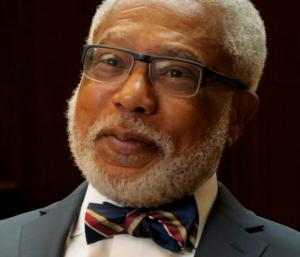
When it comes to America’s traditionally black churches, the previous uniting focus on combating racism has dissipated. The prosperity gospel combined with conservative politics have made inroads. The tide has gone out. At least according to Emory University’s Walter Earl Fluker, Martin Luther King, Jr., Emeritus Professor of Ethical Leadership. The indefatigable Gary Dorrien reports on the black church in the Christian Century.
“Fluker contends that three generations of African Americans have come of age lacking a moral script. He acknowledges that some of the old scripts are best forgotten, ‘but when you appear on the stage of history without your lines, in most cases you appear either as an anxious stutterer or as a highly improvisational actor. The calling of church leaders in King’s time was to stir the churches to struggle for freedom and equality. The calling of church leaders today is to wake the dead’.”
We are at low tide for America’s churches, whether black or white.
Why is the tide for American churches so low?
When you ask a Millennial or a Gen Z why they avoid going to church, you’ll hear a handful of reasons that typically include the following.
- Churches are anti-science. Smart people embrace science while superstitious people embrace religion.
- Churches are prejudiced against LGBTQ+ people.
- Roman Catholic priests are guilty of child abuse and sex abuse.
- Evangelical churches are pro-Republican and mainline churches are pro-Democrat. Why must I decide my politics first?[2]
What cultural tsunamis caused the high tide for anti-religion?
Let me adumbrate some cultural thresholds we’ve crossed that contribute to the low tide for American churches. These are my best guesses.
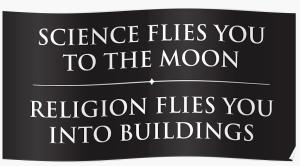 2001. The 9/11 attack on New York’s Twin Towers by Wahabi inspired Muslims jolted Americans into religious consciousness. From that moment on, all religions—not merely radical Islam—became identified with irrationality, fanaticism, violence, and war. Here’s one bumper sticker from the era: “Science flies you to the moon. Religion flies you into buildings.”
2001. The 9/11 attack on New York’s Twin Towers by Wahabi inspired Muslims jolted Americans into religious consciousness. From that moment on, all religions—not merely radical Islam—became identified with irrationality, fanaticism, violence, and war. Here’s one bumper sticker from the era: “Science flies you to the moon. Religion flies you into buildings.”- 2006. A new atheism exploded with an aggressive mission to de-convert the populace from their religion. Darth Dawkins’ book, The God Delusion, became the smart person’s Bible. Web sites enticed teenagers to read atheist propaganda during school recess.[3]
 2000 to Today. The cell phone became hegemonic. Gen Z never knew life without the cell phone, which occupies this generation’s consciousness for half 0f each day’s waking hours. Available on the screen are dozens of competing worldviews and recruitment videos that inundate with a plurality of enticing options. No longer can a young person live meaningfully within the worldview of the Bible let alone the routine of church life. The cell phone de-traditionalizes and de-institutionalizes our self-understanding.[4]
2000 to Today. The cell phone became hegemonic. Gen Z never knew life without the cell phone, which occupies this generation’s consciousness for half 0f each day’s waking hours. Available on the screen are dozens of competing worldviews and recruitment videos that inundate with a plurality of enticing options. No longer can a young person live meaningfully within the worldview of the Bible let alone the routine of church life. The cell phone de-traditionalizes and de-institutionalizes our self-understanding.[4]- 2000 to Today. To reiterate: the cell phone de-institutionalizes. Astute Philip Jenkins puts it this way. “When churches decline, it’s not so much a matter of theology, or morality debates, or anger at the behavior or attitudes of particular churches or their hierarchies. Rather, we have become non-joiners, non-participators.”
Should we blame ourselves?
How should we react? Well, as is customary, we Christians used to confessing our sins are ready and willing to blame ourselves for the low tide for American churches. Progressive Patheos writer Tim Shuttle provides an example of self-blaming.
“But the church is facing a huge problem, and it is not a problem of resistance or secularity, nor is it a problem of the culture’s hostility to the gospel. It is a problem of our own making. We have become enamored with size. We have become infatuated with all things bigger, better, stronger, higher, and faster.”
Evangelical Patheos blogger, Roger Olson, blames us for not making a bigger impact on the surrounding culture.
“My suggestion is that Protestants have done this to ourselves. Overall and in general, we are boring.”
Even if what Shuttle and Olson say obtains, I don’t believe it helps us grasp the enormity of the cultural tsunammis that reorient the tides. Yes, Olson is right: we need to rise up and engage the culture.
Diana Butler Bass on Christianity after Religion

In 2012 Diana Butler Bass published, Christianity After Religion. She thought she could anticipate an awakening, though certainly not a revival.. Beyond the end of religion, she said, we could look forward to a new spiritual awakening. Five sociological moments characterize such a spiritual awakening: (1) crisis of legitimacy; (2) cultural distortion; (3) new vision; (4) following a new path: and (5) institutional transformation.
The low tide for American churches indicates that we are now in a crisis of legitimacy. Christian affirmations are no longer welcome in our increasingly anti-religious culture, nor are they welcome in the multi-religious or inter-religious subculture. In the anti-religious context, Christian claims are dismissed as superstitious. In the inter-religious context, Christian claims are dismissed as imperialistic.
Conclusion: are we at low tide for America’s churches?
Even though I previously connected “religion decline and public theology,” this post is aimed at the churches. Not the wider public. What should we in the churches pray for? What actions should we take?[5]
“How can we reverse the decline of Christianity?” asks Southern Baptist Benjie Shaw.
“The solution is unclear. Some think that a return to old-style religion with an emphasis on personal evangelism and recommitment to missions is the way forward. Some argue that what we need is a fresh movement of the Holy Spirit to propel the American church into a new phase.”
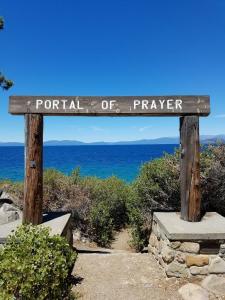 Lutheran Gene Veith answers Shaw’s question: we should pray. “We should pray, since God is the one who brings people to faith and builds His church.”
Lutheran Gene Veith answers Shaw’s question: we should pray. “We should pray, since God is the one who brings people to faith and builds His church.”
Like Veith, Baptist Mark Corbett relies on prayer to stem the tide in his video: “Turning the Tide.”
Any hoped-for authentic spiritual awakening will have to be led by the Holy Spirit. That’s what we should pray for. I’m not confident that we can boot-strap an uninspired cultural movement that could be both authentic to the gospel and effective for transformation.
Now, I have noticed one thing. The ancient Roman world was united by its lingua franca, Greek. Second generation Christians were fluent in Greek. Christian proclamation flooded the Greek-speaking world like a high tide floods the landscape.
Today’s lingua franca is social media. Tomorow’s lingua franca will be AI. Can our churches speak those languages?
▓
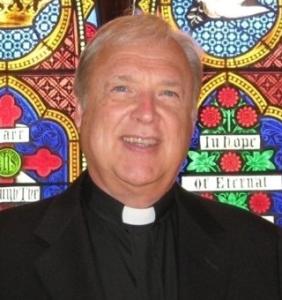
Ted Peters directs traffic at the intersection of science, religion, and ethics. Peters is an emeritus professor at the Graduate Theological Union, where he co-edits the journal, Theology and Science, with Robert John Russell on behalf of the Center for Theology and the Natural Sciences, in Berkeley, California, USA. He authored Playing God? Genetic Determinism and Human Freedom? (Routledge, 2nd ed., 2002) as well as Science, Theology, and Ethics (Ashgate 2003). Along with Martinez Hewlett, Joshua Moritz, and Robert John Russell, he co-edited, Astrotheology: Science and Theology Meet Extraterrestrial Intelligence (2018). Along with Octavio Chon Torres, Joseph Seckbach, and Russell Gordon, he co-edited, Astrobiology: Science, Ethics, and Public Policy (Scrivener 2021). Look for his newest book, The Voice of Public Theology, a collection of previous articles. See his website: TedsTimelyTake.com.
▓
Notes
[1] Although there’s a low tide for America’s churches and seminaries, it’s still high tide at the Graduate Theological Union (GTU). The GTU is a global center for inter-religious academic study. We continue to expect creative scholarship from Berkeley. The low tide for American churches is leaving professional preparation high and dry, to be sure. But good scholarship at the doctoral level in religion and culture continues, thanks to the GTU.[2] Monsignor Eric Barr, writing for Patheos, announces, “The politicization of religion has led to swaths of groups ditching religious belief.” Adam Gabbatt, writing in The Guardian, reports that about a quarter of the young adults who dropped out of church said they disagreed with their church’s stance on political and social issues.
[3] According to NORC data, atheists only made up about 2 percent to 3 percent of the population from 1988 to 2012. By 2021, atheists were 7 percent of the population. David Schloss hastens to point out that ,in addition to atheists, waves of SBNRs (Spiritual But Not Religious) have lapped up on religion’s shore.
“The decline of organized religion has not only led to an increase in atheism, but also the advent of the nones, people who do not identify with any religion. Yet, human beings are religious creatures by nature, and any effort to denude humanity of its transcendent sensibilities will often lead to religion appearing in another form. One such form is composed of people who consider themselves spiritual, but not religious.”
[4] The hegemony of social media combined with anti-religious momentum is weakening all voluntary institutions, not merely the churches. Jewish journalist Jessica Grose, writing in the New York Times, is beset with heartbreaking ambivalence.
“My own feeling is one of profound ambivalence. I have no interest in going back to temple and little trust or appetite for organized religion. But I feel passionately about being Jewish, and a little heartsick about not knowing quite how to pass along my ritual and history to my children. I do wonder about what may be lost by not having a community connected by belief, but I’m not quite sure what that is, or if replacing it is possible, or even desirable.”
[5] When praying or acting, please avoid the temptations of Christian nationalism. That’s only an idolatrous option that would be self-destructive. See: “Christian Nationalism vs. Anti-Christian Nationalism.“







